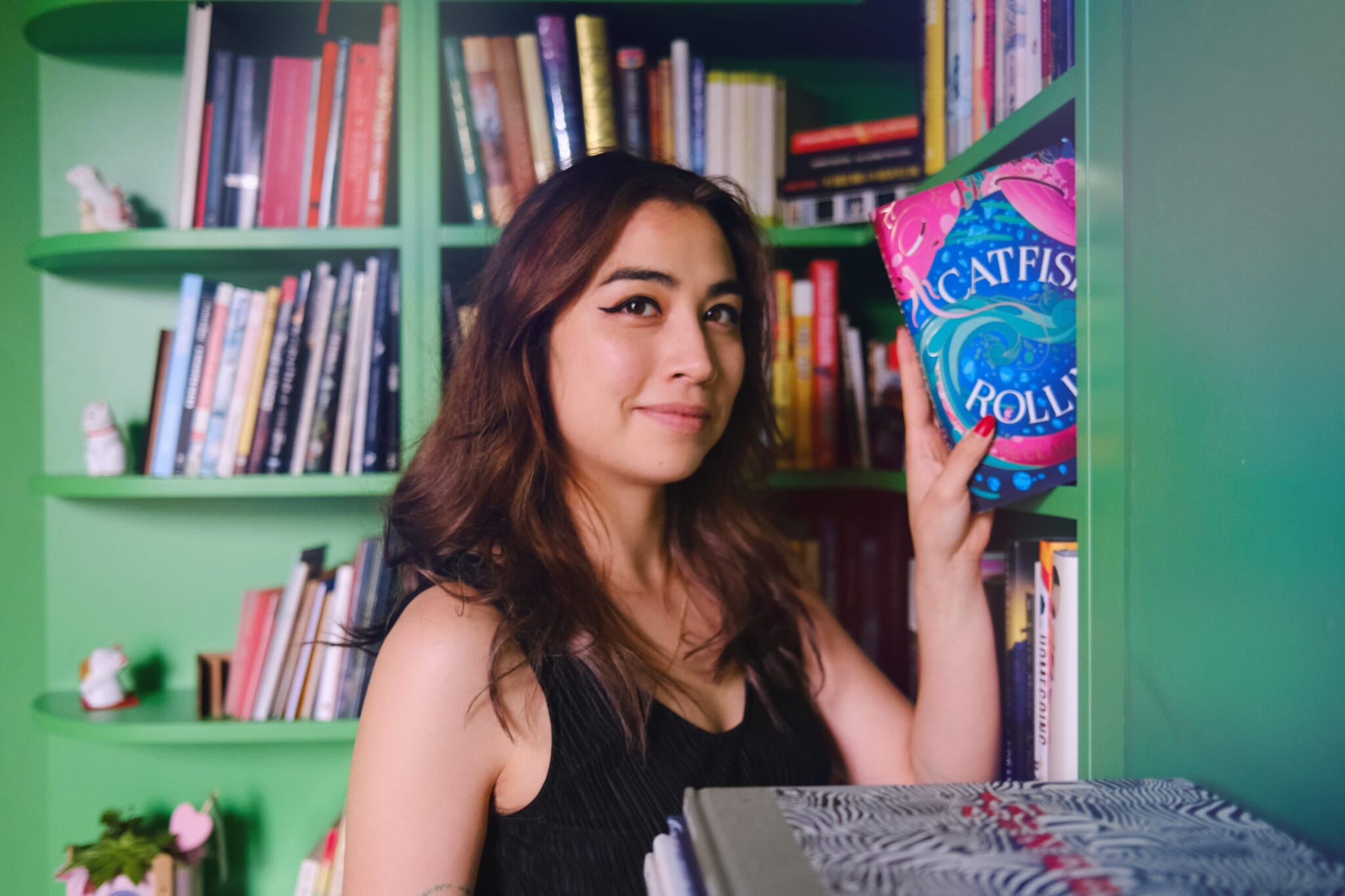An author, a lecturer and a world traveler all rolled up into one, Clara Kumagai, published her acclaimed debut novel Catfish Rolling this spring. The YA story, which deals with the aftermath of an earthquake on the life of a teenage girl, Sora, mixes myth and fantasy with nature and science. Most of all, I felt when reading, it was a book about in-betweenness: the in-betweenness of adolescence, of dealing with natural disaster and trauma, and of belonging to a family that spans multiple cultures, languages and nationalities. It is certainly a book that draws heavily both from Kumagai’s pluralistic identity as a multi-national, Japanese-Irish woman, and from her time living and working in Japan.
Kumagai took the time to sit down with me over Skype to discuss her background and flourishing new career as a novelist and short story author. It’s 10pm in Japan — behind me are the dark, deserted and faintly Ju-on-esque offices of my company building. Meanwhile, it’s 1pm in Dundalk, Ireland: a rectangle of daylight illuminating the emerald green shelves of Kumagai’s study and her large cat, Joji. We’re having our own modern-day magical moment across two worlds offset by time and space — who wouldn’t want to pick up a pen and write?
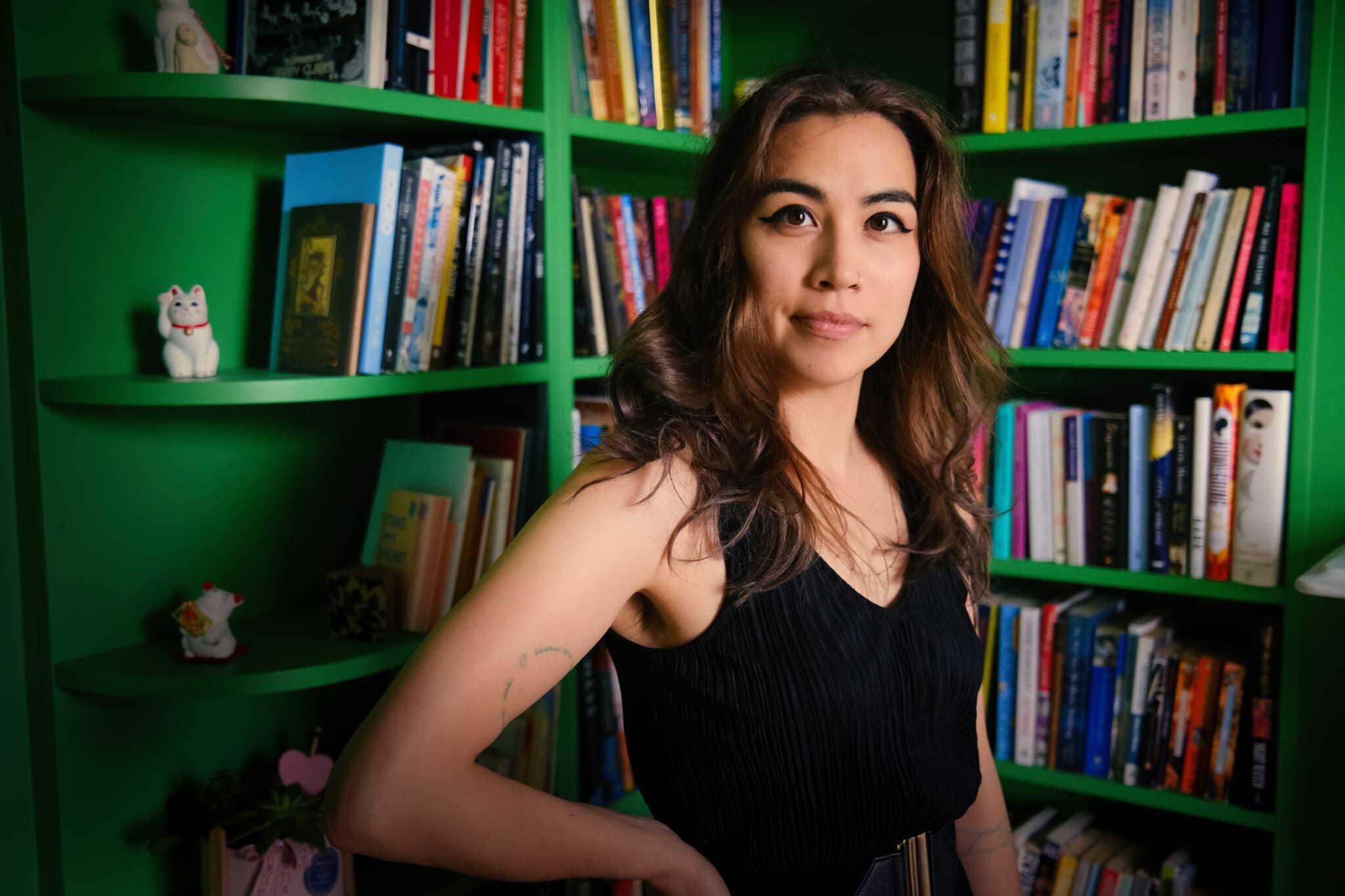
The Writer’s Roots
Kumagai grew up as the oldest of three siblings to a Japanese father and Irish mother, beginning in Vancouver, Canada, before moving back to Ireland at age 5. She visited Japan occasionally to see her grandparents in Aichi Prefecture in the deep countryside — the part of Japan she came to be most familiar with in childhood.
As a child who loved reading (particularly fairytales and local Irish folklore), Kumagai often wrote her own stories and fantasies whenever bored. Her writing tapered off as she grew older, but was reinvigorated during her BA in English and Drama at Trinity College, Dublin.
“During my undergrad I did playwriting,” Kumagai explains. “Having that grounding in playwriting really helped me with dialogue and action, what characters are physically doing.” This period of renewed creativity was also the first time Kumagai began to seriously consider creative writing a calling and a part of her future career, and subsequently led to her pursuing a three-year Master of Fine Arts in Vancouver a few years later.
“MFAs don’t necessarily teach you to write, but they teach you structure, editing, redrafting and most importantly give you the time to do all that.”
Most of all, as a reader and writer, Kumagai wanted to find works that reflected her own mixed heritage in its characters. Even non-white characters, she found, were few during her childhood years. Catfish Rolling was the work of many years, first begun in Vancouver and finished during Kumagai’s time in Japan. Her inspiration for the protagonist, Sora, in Catfish Rolling was deeply personal.
“I think we’re very different,” she says of herself and her protagonist, “but it was important for me to have a multiracial main character, and to have other characters who were from diverse backgrounds — Zainichi Korean, Japanese American, haafu and Black. I don’t feel like there’s enough representation. And I wanted to be careful and respectful of those characters too since that’s far outside of my experience as someone who is Japanese and white.”
Representing mixed-heritage experiences and Japan itself as pluralistic and complex rather than monoliths became increasingly important for Kumagai as she continued to craft her novel.
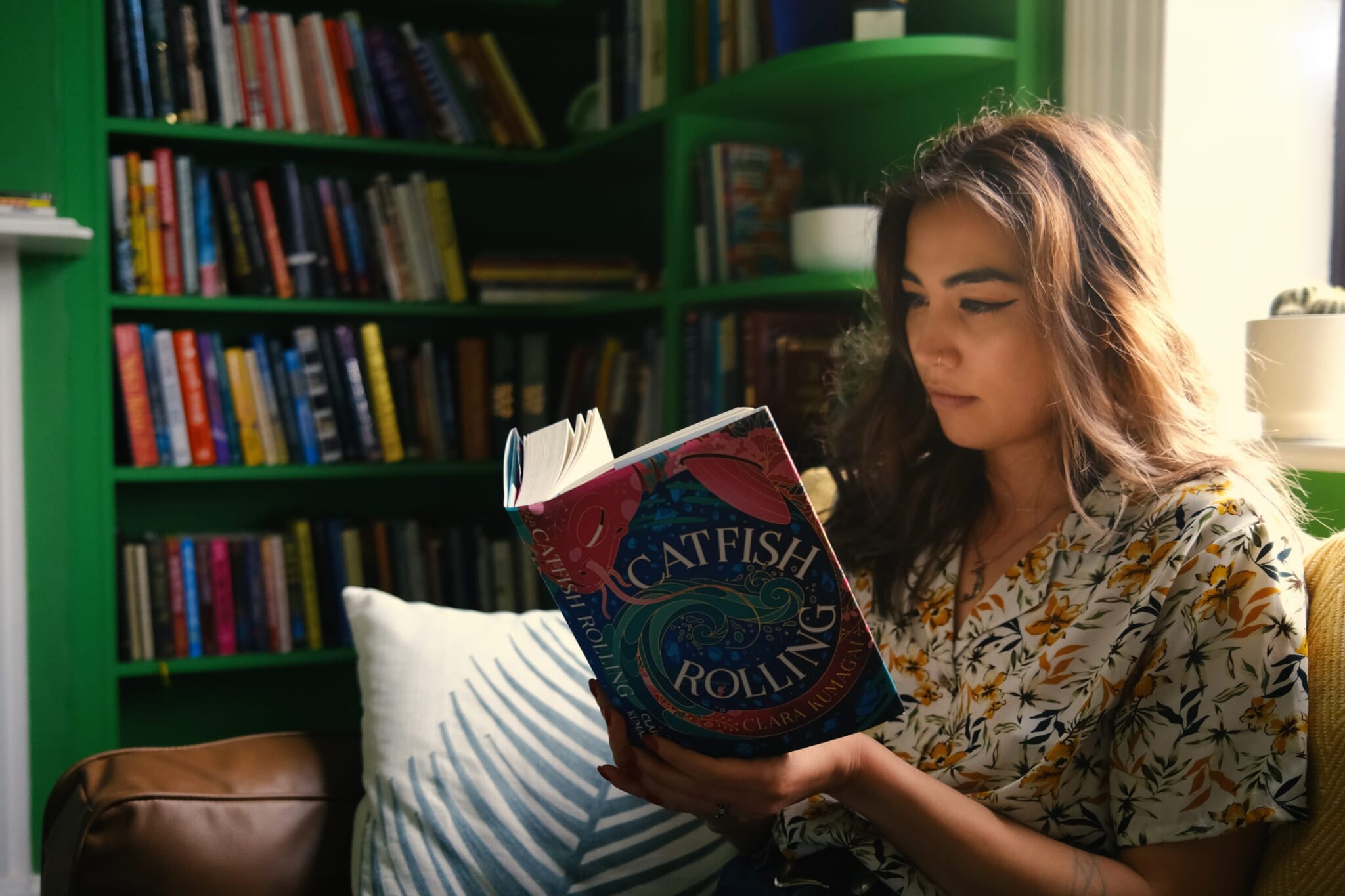
Finding Inspiration in Japan
When Kumagai moved to Tokyo to live and work full-time as a university teacher and private tutor in 2017, she had already published several short pieces of fiction in publications and literary magazines including Banshee Press and The Stinging Fly. Relocating to Japan on a coveted “child of a Japanese” visa gave her further opportunities to explore Japan as a journalist and heritage speaker reconnecting with her roots. Kumagai went on to write articles for Japan Insights and The Irish Times.
Touring and researching the exclusion zones in Fukushima — lasting marks on the region’s landscape following the 2011 Fukushima earthquake and Daiichi reactor meltdown — as well as meeting people still living with loss from the 2011 disaster became formative experiences as Kumagai continued writing and restructuring her book. As Kumagai did not feel she had the experience or knowledge to write directly from the viewpoint of one of these people misplaced by the tragedy, magical realism and time displacement became metaphors for Kumagai to explore these topics.
“When you go to the exclusion zones, nature has taken over in a way that makes it feel like a hundred years have passed. That made me think of time as something tangible,” she says.
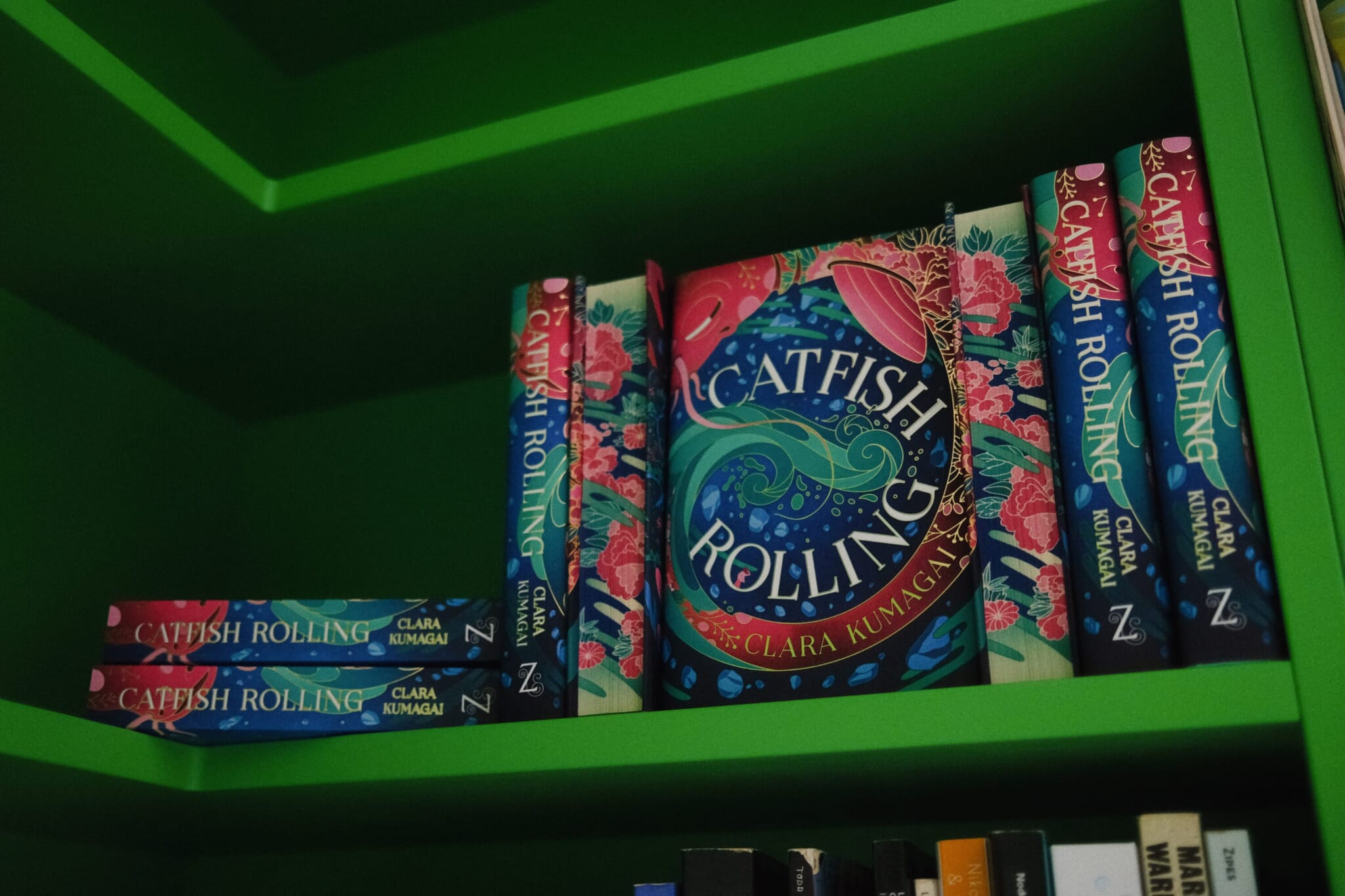
Living in Japan also gave Kumagai a chance to explore the folklore and fairytales of Japan more deeply. Catfish Rolling was as inspired by Kumagai’s visit to the Kashima Shrine in Ibaraki where the mythical earthquake-causing catfish is trapped as her studies in the exclusion zones. She also had the opportunity to unpack more of her own feelings as a Japanese-Canadian-Irish person. When I asked Kumagai how she felt when she formally moved to Japan, if it felt like coming home or if she still felt like a visitor and an outsider, she explained:
“A mix of both. Some things feel homey and natsukashii, things that are familiar from visiting my grandparents as a kid though we didn’t come every summer unlike a lot of my other haafu friends. I started learning Japanese at 27, so my Japanese really isn’t good and I found it hard to start learning then. I think heritage learners have loads of hang-ups, or at least I do!”
Ultimately, Kumagai spent five years living in Tokyo before returning to Ireland mid-2023, but her connections to the country and culture continue to play an important role in her life and work.
“I couldn’t have written the same kind of book without spending time in Japan, doing the research here, and talking to so many different people,” she says. “There are so many details that add texture to the world you build.”
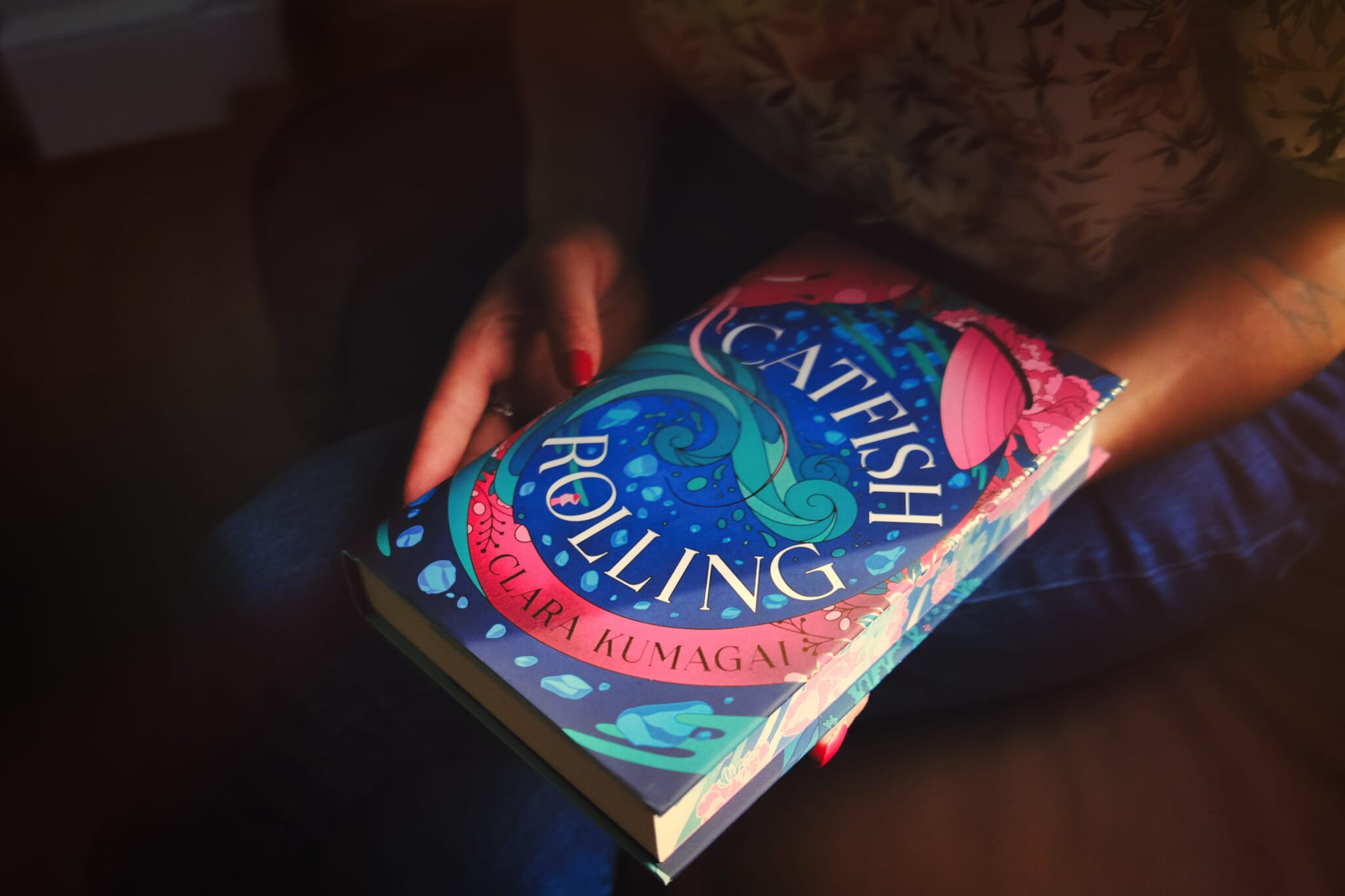
Making Writing a Reality, Not Just a Dream
Now a fully-fledged and successfully debuted writer, Kumagai is enjoying her new life balancing the business of being an author (promoting Catfish, attending readings and radio interviews, securing licensing to release the book in other countries) and working on her upcoming, currently unnamed novel which will be a reimagining of the opera Madama Butterfly. In November, Kumagai announced the exciting news that Catfish had been nominated for the 2024 Carnegie Medal for Writing.
Her biggest advice for new writers:
“Respect your own work, and don’t feel like you should be grateful or lucky to publish,” she says, citing the long hours and effort all authors put in. “And of course be able to take feedback.”
Follow Clara Kumagai on Instagram and X (formerly Twitter).

